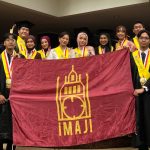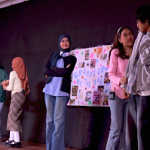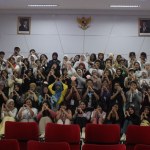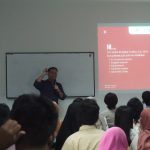Arsip:
Post Slider
📢 [ ❗ Announcement: Registration Deadline Extended for StuCELL 2023❗️❗️ ] We are delighted to share some exciting news with you. The registration deadline for StuCELL 2023 has been extended to accommodate more participants.
The English Department hosted one public lecture and two seminars in November 2022. All of the events were held in a hybrid format. To attend the events, attendees would either go to the 7th floor […].
Our English Department major held a recruitment event for its students to join the committees of events for an internal Merdeka Belajar – Kampus Merdeka (MBKM) program.
OPEN RECRUITMENT Hello, English Department Students! Through this announcement, English Department, FIB, UGM, would like to invite you all to join as committees and participants for two great events that will be commenced next semester/odd […].
It was amidst the chaos of community service when a friend of mine suddenly texted me, “Let’s join Studi Independen!” It did not take long for me to say yes.
The UI/UX Independent Study Program at the Startup Campus was a valuable learning opportunity for me. Through the program, I gained a comprehensive understanding of user experience design, including how to create digital products that […].
On Saturday, November 26th, 2022, the English Studies Programme of UGM held an International Students’ Seminar on Children’s Issues. This event remained the last seminar held on behalf of the English Department students who joined […].
On November 8 and 9, 2022, the English Studies Association Indonesia (ESAI) held their annual congress at Universitas Islam Sumatera Utara, which was attended by department heads and lecturers of English studies programmes from various […].
On Tuesday, November 8th, 2022, students of the English Studies Programme UGM who enrolled in “Kampus Merdeka” program held its first seminar titled “International Students’ Seminar on Gender Equality” as one of the three-part events.
On Saturday, September 30, 2022, the Community Service by English Studies Programme at Muhammadiyah Highschool in Bumiayu was carried out. On September 26, 2022, an online conference was held through Zoom prior to the main […].






